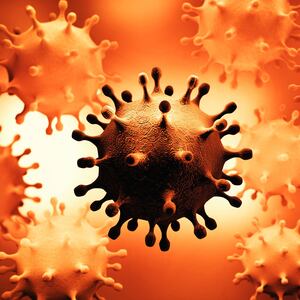Tech billionaire Bill Gates wants to make a lot of coronavirus vaccines, fast.
His plan could be really expensive. Wasteful, even. But it just might work.
Provided there even is a vaccine for SARS-CoV-2, the virus that causes the deadly COVID-19 disease that’s rapidly spreading across the planet. Some scientists doubt we’ll ever develop a working vaccine.
Gates is assuming the best. “There’s no question the United States missed the opportunity to get ahead of the novel-coronavirus,” Gates wrote in The Washington Post on March 31. “But the window for making important decisions hasn’t closed.”
“To protect Americans and people around the world, we’ll need to manufacture billions of doses,” Gates added. “We can start now by building the facilities where these vaccines will be made.”
Under normal circumstances it can take years, to develop a new vaccine and get government approval to deploy it. The factory for making the vaccine could itself take months to build. If you wait for the former in order to start setting up the latter, you might be looking at three years from the beginning of R&D to first vaccination.
It’s safe to say the world can’t wait three years to begin fighting back against this novel coronavirus. Since the pathogen first appeared in Wuhan, China back in December, it has spread all over the planet, infected more than 1.6 million people that we know of and killed more than 100,000.
Gates wants to make millions of doses of a vaccine in months, not years.
On April 2, Gates appeared on The Daily Show with Trevor Noah to propose a shortcut. He said the Bill & Melinda Gates Foundation, his $37-billion health charity, would help pay for seven different factories for seven different vaccines now in development—all in the hope that at least one vaccine actually works.
Companies would immediately break ground on the factories. Presumably the facilities would be ready before their vaccines are. As soon as a vaccine gets government approval, its associated factory can start churning out doses. “Our early money can accelerate things,” Gates said.
The Bill & Melinda Gates Foundation has already tapped two vaccine-development efforts to receive foundation money. The charity is still looking for the other five potential vaccines.
Fei Wen, a chemical engineer at the University of Michigan, praised Gates’ plan. “In my view, Gates’s foundation's strategy is very smart and is only possible for a well-run, self-funded foundation like the Gates foundation,” Wen told The Daily Beast. “It essentially pushes the vaccine development and production simultaneously. While the cost is great, the benefit could be greater.”
It’s hard to underestimate the scale and complexity of the effort Gates is sponsoring. The goal, Gates said, is to quickly produce at least a billion vials. Enough to vaccinate 15 percent of the world’s population.
But making vaccines is hard even when time isn’t a factor. “Most vaccines are produced from living organisms (cells or bacteria) and the process for their production is complex, requiring extensive process development in order to ensure consistent production of a safe and efficacious product,” a spokesman for The Discovery Labs, a Pennsylvania medical-tech company, told The Daily Beast.
“Given the complexity of the manufacturing process, operators must be highly skilled and adhere strictly to the standard procedures for production of each batch of vaccine, hence extensive training programs are required,” the spokesman added.
It can cost up to half a billion dollars to build a single production line for just one vaccine, The Discovery Labs spokesman explained. And since each vaccine is unique, you can’t necessarily use the same factory for more than one vaccine, he added.
In fact, when it comes to SARS-CoV-2, it’s far more likely that manufacturers will need to build several separate but identical production lines for any successful vaccine. “It’s very likely that more than one facility is needed to make enough doses,” Wen told The Daily Beast.
For that reason, it’s not hard to imagine companies eventually duplicating one or more of Gates’s successful factories. In essence, profiting off Gates’s loss.
The billionaire didn’t seem to mind. “It’ll be a few billion dollars we’ll waste on manufacturing for the constructs that don’t get picked because something else is better,” Gates told Noah. “But a few billion in this, the situation we’re in, where there’s trillions of dollars... being lost economically, it is worth it.”
That’s assuming, of course, that a coronavirus vaccine is even possible. While some viruses lend themselves to successful vaccines—the flu, for example—others don’t. HIV, the virus that causes AIDS, has defied vaccine-developers for decades.
A team of scientists in Germany, which spent weeks carefully studying nine COVID-19 patients, warned in an April 1 paper in the journal Nature that SARS-CoV-2 might end up being more like HIV than like the flu.
“We should not be overconfident that a vaccine strategy will work,” David Ostrov, a professor in the Department of Pathology, Immunology and Laboratory Medicine at the University of Florida College of Medicine, told The Daily Beast.






